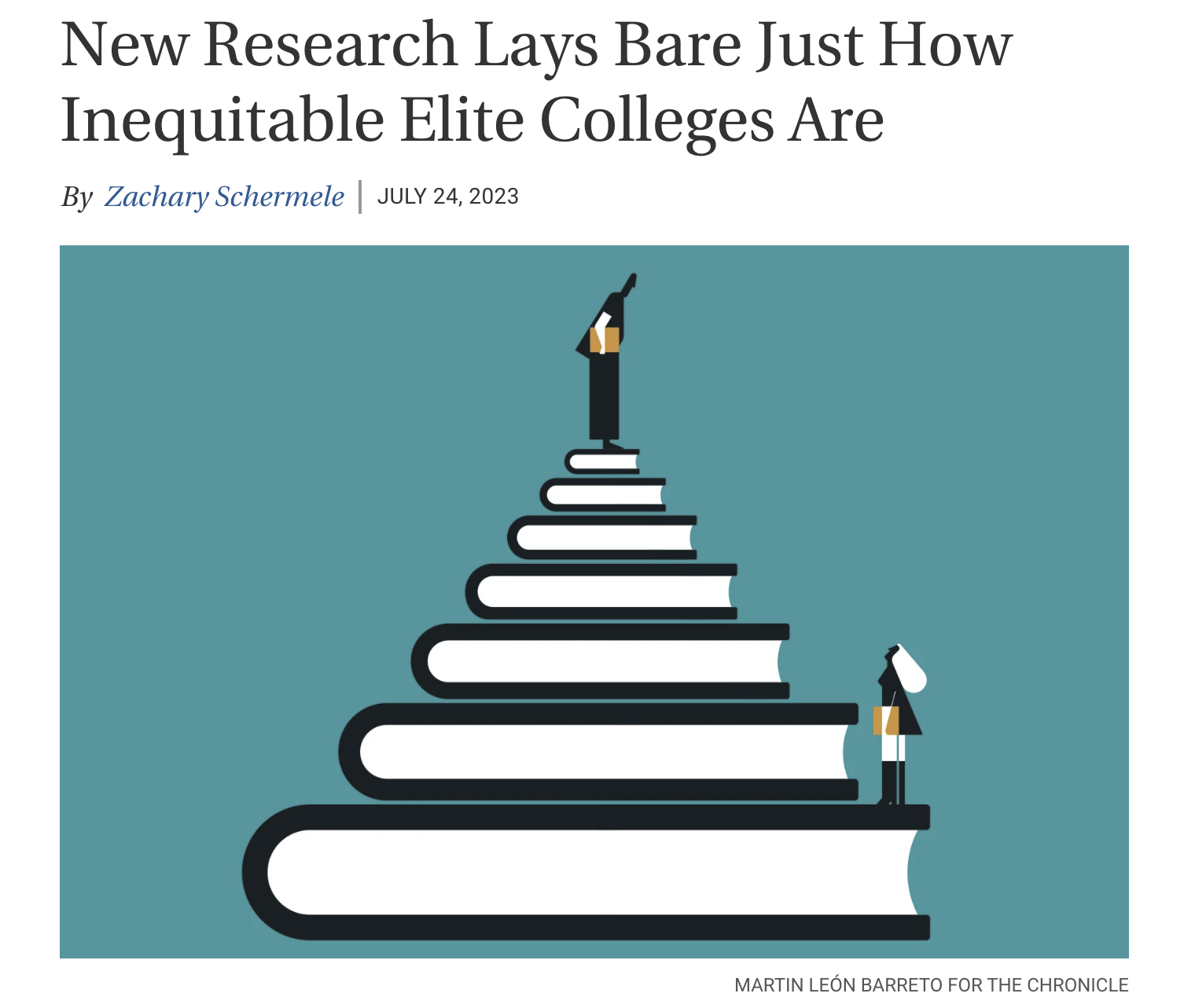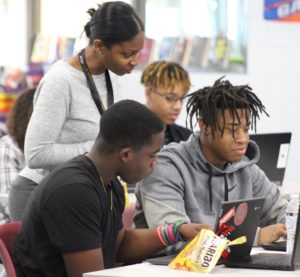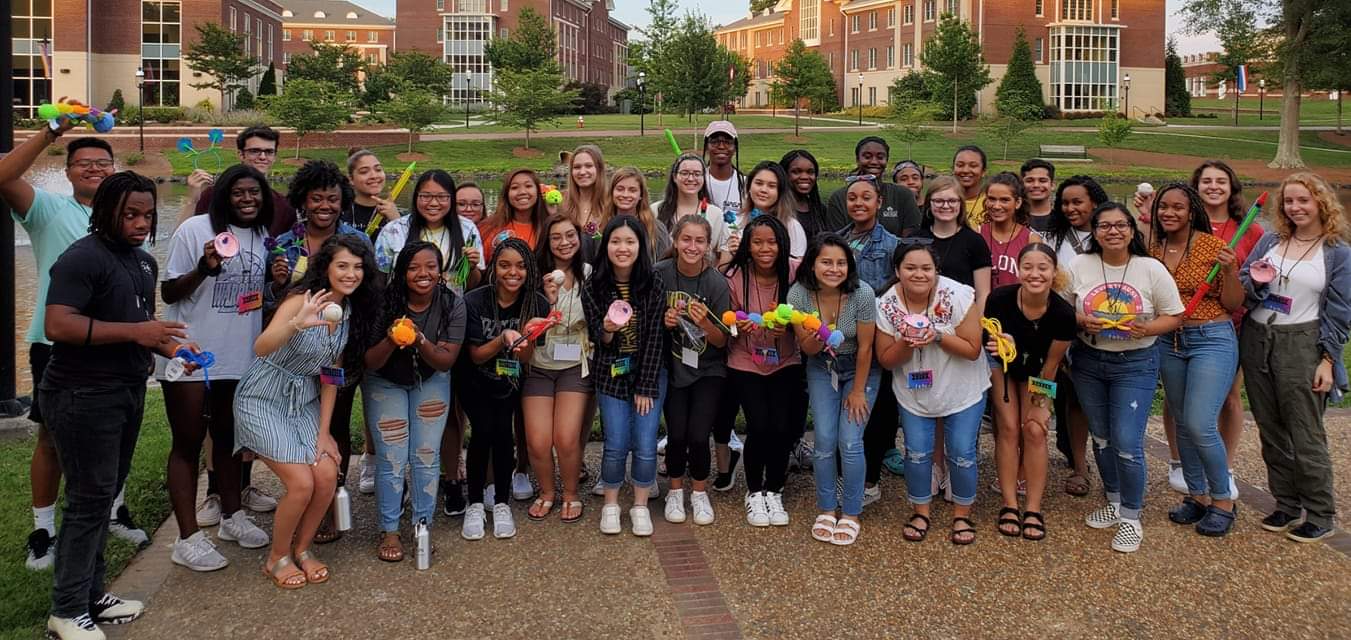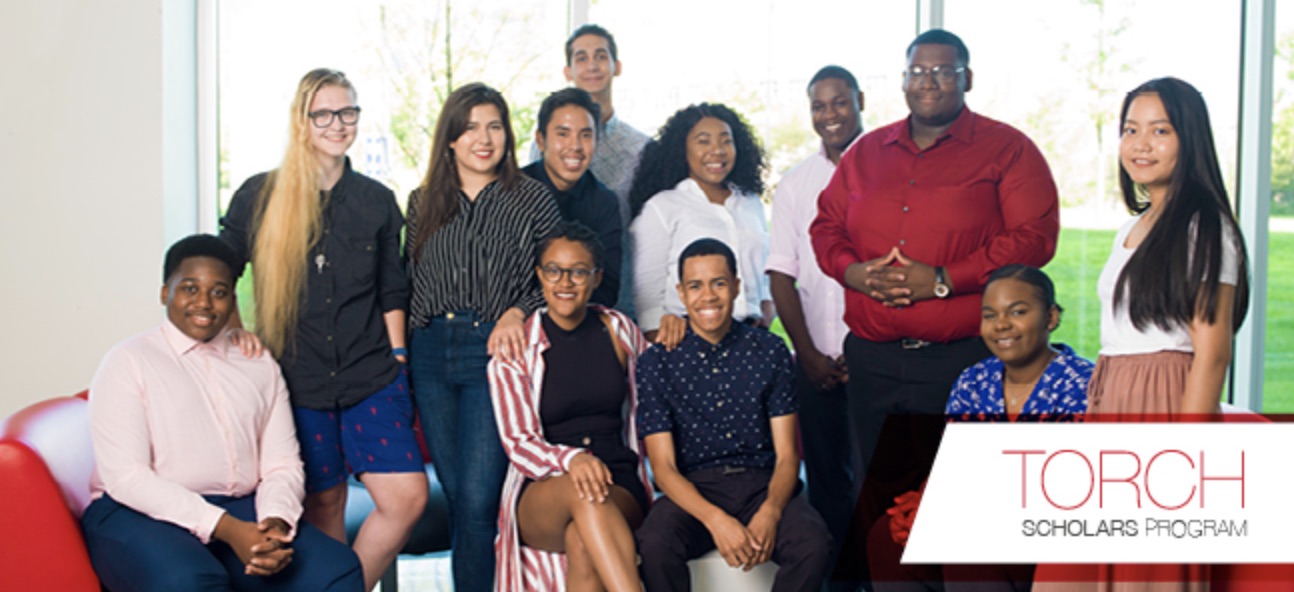College Planning Cohorts
Cultivating Conversational Communities
College Planning Cohort Program
Responding to Inequity
 While any student may join our college planning cohort program, our program was developed by our founders, Mychal and Nina Wynn, to address the inequities in college admissions and student loan debt—both of which contribute to the wealth gap in America. In the article “American Wealth is Broken,” Maura Cheeks, daughter of Mr. Wynn’s Du Sable High School classmate and professional basketball player, Maurice Cheeks, recounts an all to familiar story:
While any student may join our college planning cohort program, our program was developed by our founders, Mychal and Nina Wynn, to address the inequities in college admissions and student loan debt—both of which contribute to the wealth gap in America. In the article “American Wealth is Broken,” Maura Cheeks, daughter of Mr. Wynn’s Du Sable High School classmate and professional basketball player, Maurice Cheeks, recounts an all to familiar story:Maurice Cheeks grew up in Chicago’s Robert Taylor Homes, once the largest public-housing development in the country; it’s now gone—the last building was torn down in 2007. The development opened in 1962, housing up to 27,000 people despite being planned to hold less than half of that. By 1975, 92 percent of the families relied on government assistance. My grandmother was well known around the building she lived in. She used to belt out my dad’s and uncles’ names to get them to come inside as soon as the streetlights turned on. Secretary of Housing and Urban Development Henry Cisneros once said, ‘ don’t know of another place in America where there are 15 shootings and five killings over a weekend.’ My dad’s general feeling was that you lived your life as best you could. ‘it was rough,’ my dad told me. ‘But we didn’t really think about it at the time.’

Though the nation’s most-selective private colleges have long been criticized for perpetuating inequality, a sweeping new study has reached a stark conclusion: They “amplify the persistence of privilege across generations.”
Research released Monday from three education scholars at Harvard and Brown Universities pulls from a trove of data, including federal tax returns, standardized-test scores, and application and admissions records, some of which were anonymously provided to the researchers by selective colleges.
The study looked at “Ivy-Plus” colleges, defined as the eight Ivy League colleges plus Stanford University, the Massachusetts Institute of Technology, Duke University, and the University of Chicago.
Their conclusion is decisive: getting into one of those colleges “dramatically changes children’s life trajectories.” Then, after those students graduate, they’re more likely to make more money than their peers who were educated elsewhere.
Our Program is One of a Kind
- Omar, a first generation student who is a Jack Kent Cooke College Scholar and will be a first-year student at Brown University.
- Jocelyne, a first generation student who is a high school junior in the IB Program at St. Petersburg High School in St. Petersburg, Florida and serves as the president of our youth leadership board.
- Josiah, a first generation student who is a high school junior at Boca Ciega High School in St. Petersburg, Florida an has served on our youth leadership board.
7-year Curriculum
- From whose viewpoint are we seeing or reading or hearing? From what angle or perspective?
- How do we know when we know? What’s the evidence, and how reliable is it?
- How are things, events, or people connected to each other? What is the cause and what is the effect? How do they fit together?
- What’s new and what’s old? Have we run across this idea before?
- So what? Why does it matter? What does it all mean?
Through the process of deeply considering their current goals and long-term aspirations within a college planning context, students increase their critical thinking skills as they continuously ponder, “What is the right college for me? Where will I receive the most financial aid? How can I further develop my body of work?”
- 9th graders EXPLORE and ESTABLISH themselves for making a successful transition into high school through a yearlong focus on study skills and planning their high school trajectory across our 3 pillars of scholarship, leadership, and service.
- 10th graders REVISIT and RE-AFFIRM their successful approach to studying and learning and aligning scholarship pathways with their academics, leadership, service, and gifts and talents.
- 11th graders PLAN to pursue specific college and scholarship pathways.
- 12th graders IMPLEMENT THEIR PLANS in pursuing their affirmed college and scholarship pathways.
College Planning is All About Strategy
If increasing college readiness and expanding college access was all that was needed, student loan debt would not be so high and college completion rates so low. The table presented below, taken from the SallieMae report, “How America Pays for College 2018” provides insight into the $1.56 trillion student loan debt crisis and the disproportional load being carried by students from demographically identifiable subgroups.

Are You a Good Fit for Our Program?
Despite the wealth of information and proven success, each student and parent must determine if they are a good fit for our program. Students must be vested in the work required to develop a comprehensive college-bound set of strategies. While a student may be unable to participate in the monthly discussions due to conflicts in their work or extracurricular activities, they must be vested in completing the monthly modules, through which their college and scholarship plans materializes. Students who are unable, or unwilling, to make this commitment should not apply to our program.
Your Role: As a parent, teacher, counselor, coach, mentor, or program administrator, your role is to cultivate a “conversational community.” Whether one-on-one or in a small group setting, talk to students about what they are learning. Ask students to not only explain what they are learning, but how they will apply what they have learned to their lives. Review their narratives and assess their level of engagement. Ask probing questions, such as explaining the differences between liberal arts colleges and research universities or cooperative education programs and dual degree programs.
Parent/Mentor Training: For parents, teachers, counselors, coaches, and mentors who are unnerved by the prospect of engaging students in one-on-one or small group conversations about college planning topics, we offer a free online training session for parents, teachers, counselors, or mentors for students registered in our program. Training sessions provide guidance in navigating our online classroom, how lessons are structured, and how to focus conversations around the, “Guiding Questions,” which are provided in each lesson. We provide guidance in reviewing student narratives and how to use student narratives to assess student engagement.
Our curriculum does all of the heavy lifting. Your mentoring or after school program does not need to develop a curriculum. Your faith- or community-based program does not need to hire college planning counselors or consultants. We provide the content and your organization cultivates the conversations. We introduce students to grit and a growth mindset, while you talk to them about how to demonstrate grit and growth mindset. We introduce students to writing college essays that tell their story using non-cognitive variables and you listen to their stories and encourage students to speak their truth.
Our program removes barriers to closing the college knowledge gap. Your Boys and Girls Club, YMCA, Jack and Jill, fraternity, sorority, school, classroom, athletic team, or faith-based organization can bring students together, either in person or via conference call to talk about what they are learning and inspire students to dream bigger and to reach higher. Education is the great equalizer.
College Readiness and Culturally Relevant
 Our program meets the standards of U.S. Department of Education ESSA, Title IV, Part A which focuses on increasing student achievement with access to a well-rounded education; increasing students’ technology proficiency and digital literacy; supporting college and career counseling; promoting access to accelerated learning opportunities such as AP, IB, and dual enrollment; promoting parent involvement; establishing community partners; innovative uses of technology; providing high quality digital learning opportunities; and delivering specialized curricula using technology. However, our program not only meets federal guidelines, but inspires. Our curriculum is culturally relevant in both content and student outcomes. Diverse student profiles are embedded in our curriculum so that students see themselves in the curriculum and are exposed to the college and scholarship pathways chosen by students from similar socioeconomic and cultural backgrounds. Students are exposed to postsecondary pathways into technical schools, community colleges, research universities, liberal arts colleges, military academies, HBCUs, High Hispanic Serving Institutions, and first generation-friendly institutions and support programs.
Our program meets the standards of U.S. Department of Education ESSA, Title IV, Part A which focuses on increasing student achievement with access to a well-rounded education; increasing students’ technology proficiency and digital literacy; supporting college and career counseling; promoting access to accelerated learning opportunities such as AP, IB, and dual enrollment; promoting parent involvement; establishing community partners; innovative uses of technology; providing high quality digital learning opportunities; and delivering specialized curricula using technology. However, our program not only meets federal guidelines, but inspires. Our curriculum is culturally relevant in both content and student outcomes. Diverse student profiles are embedded in our curriculum so that students see themselves in the curriculum and are exposed to the college and scholarship pathways chosen by students from similar socioeconomic and cultural backgrounds. Students are exposed to postsecondary pathways into technical schools, community colleges, research universities, liberal arts colleges, military academies, HBCUs, High Hispanic Serving Institutions, and first generation-friendly institutions and support programs.

Our cohort students are choosing to be intentional in their college planning and are among the top performing and most motivated students in their respective schools; are measurably increasing their GPAs and SAT/ACT scores; are enrolling into the most rigorous classes; and are performing thousands of hours of community service and assuming leadership roles across an array of clubs, organizations, activities, and athletic teams.
 As a result of making informed college choices, our cohort students are assuming student loan debt at a far lower rate than the national average and graduating on time at a rate far higher than the national average. We are proud of the many hundreds of students with whom we have worked who are choosing to “Own the Process.”
As a result of making informed college choices, our cohort students are assuming student loan debt at a far lower rate than the national average and graduating on time at a rate far higher than the national average. We are proud of the many hundreds of students with whom we have worked who are choosing to “Own the Process.”
In 2019 Elon University Odyssey Scholar, Yuzu Do, from our Guilford County Schools Cohort was awarded 3 full scholarships and accepted the full scholarship to Elon University. Yuzu, a first generation immigrant from Viet Nam, is pictured above (fifth from left in the front row) with other Odyssey Scholars.
In 2023, Yuzu went on to graduate from Elon University with two degrees—BS in Accounting and MBA.
In 2018 Torch Scholar, Damian Lee from Florence County School District 3 Cohort (SC) (seated on the far left), was offered 3 full scholarships and accepted the full scholarship to Northeastern University.
In 2023, Damian received in BS in Political Science from Northeastern and was selected as one the inaugural Northeastern University Senior Leadership Award recipients.

The Differences Between College Planning, College Readiness, and College Awareness
Typically, school, mentoring, and community-based programs provide college readiness or expand college awareness through social skill development, study skill development, college tours, and conversations about college and careers. However, college planning is largely relegated to private college admissions counselors or advisors who work one-on-one with students or in small groups for fees ranging from a few hundred dollars to several thousand dollars. The Princeton Review “Ultimate Admissions Package” costs $2,799 and is targeted toward high school seniors who are ready to apply to college. Private College Advisors can easily cost $10,000 for a Common Application and essay review.
In the article, “How Much Would You Pay to Get Your Child into Harvard,” the $10,000 consultant fee was paid by a family to increase the odds of their child being offered admission to Amherst College—where our older son received his degree and where we have successfully assisted many cohort students in being offered admission. One of our Guilford County Schools Cohort students, Brenna Kaplan, posted a video sharing her journey, and our guidance, into Amherst College.
We are the only nonprofit community-based organization (CBO) with a comprehensive proprietary research-based and research-responsive curriculum providing college planning guidance freely to students and families in our partner school districts; at a deeply discounted price for students at our faith- and community-based partners, and at minimal price directly to students and families through our online program. In contrast to college readiness and college awareness, college planning involves course planning, summer planning, college/career research, self-assessment, leadership development, focusing community service activities, choosing the right extracurricular activities, social media assessment, navigating online portals, communicating with college admission and financial aid officers, completing the FAFSA and CSS Profiles, personality type profiles, multiple intelligences, narrative writing, institutional and private scholarship research, reviewing and negotiating financial aid award letters, and setting short- and long-term goals within a grade level specific and strategic context. Students and parents, particularly those who will be the first in their family to attend college, need assistance with navigating the FAFSA and CSS Profile, and communicating with college admission and financial aid officers. All of these areas are covered in our printed materials, throughout our online curriculum, and through one-on-one conversations with students and families.
